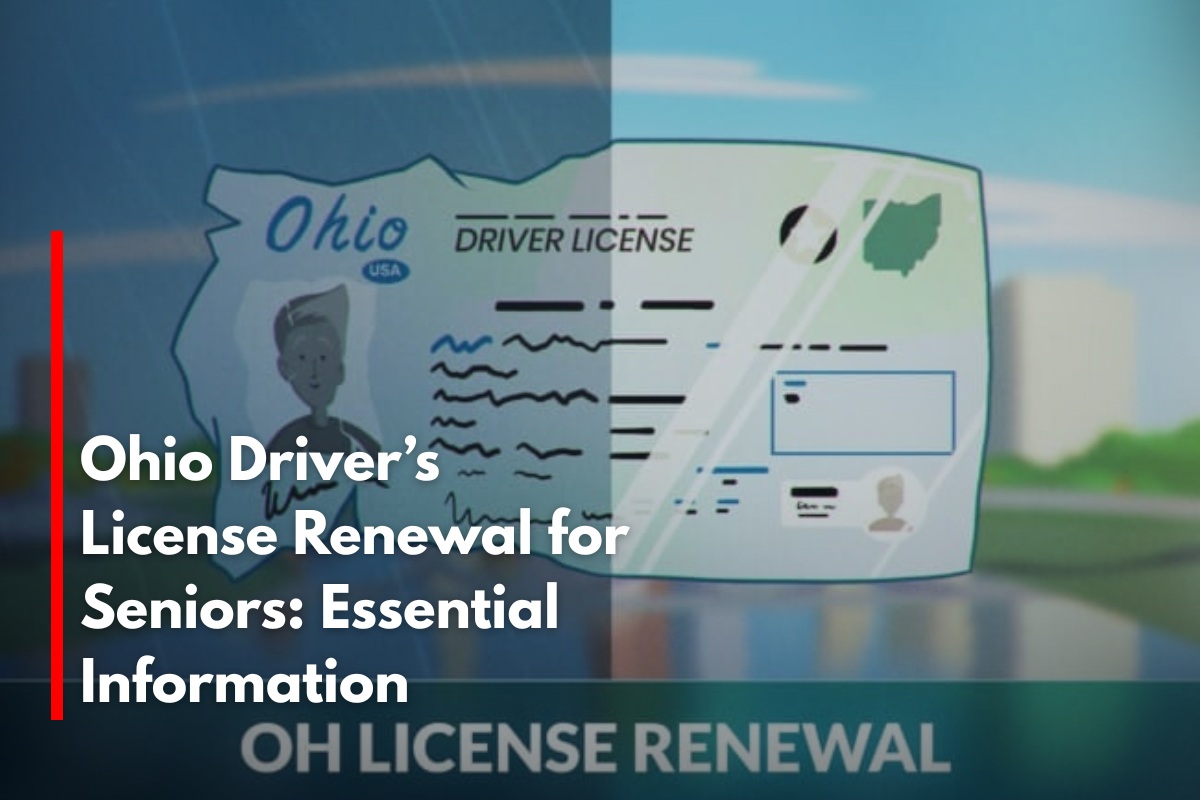Ohio drivers aged 65 and older face specific requirements when renewing their driver’s licenses. These rules balance safety concerns with convenience to help older adults continue driving responsibly while maintaining road safety.
Renewal Cycle and Duration for Seniors
In Ohio, driver licenses issued to those 65 years or older are valid for four years. Unlike younger drivers who can choose between a 4-year or 8-year renewal, seniors do not have the option for the longer period. This ensures more frequent evaluation of driving capability as people age.
Seniors must renew their licenses in person at an Ohio Bureau of Motor Vehicles (BMV) deputy registrar license agency or license office; online or mail-in renewal is not permitted for this group. The in-person requirement allows for additional screenings such as vision testing.
Vision Test Requirement
At every renewal, Ohio drivers aged 65 and older must pass a vision screening to verify they meet the state’s visual acuity and field requirements. This test helps ensure they have the vision necessary for safe driving. Those who fail the initial screening may be required to provide a report from an eye care professional or undergo further evaluations.
Documentation Needed for Renewal
Drivers must bring valid identification documents including proof of full legal name, date of birth, Social Security number, Ohio residency, and citizenship or legal presence. If the driver has changed their name, supporting documents such as a marriage certificate or court order are required. These requirements parallel those for all Ohio drivers but are strictly enforced during in-person renewals for seniors.
Expired License Protocol
If an Ohio senior’s driver license has been expired more than six months, they must obtain a temporary instruction permit and pass all applicable tests before a new license can be issued. This applies regardless of age and ensures that the applicant still meets current standards for safe driving.
Renewing Your License Safely
Many seniors benefit from early renewal, often starting 30 days before the expiration date to avoid any lapse. Ohio encourages scheduling appointments to reduce wait times at BMV offices. Additionally, seniors should have their vision examined regularly, even outside renewal times, to maintain optimal driving safety.
Additional Recommendations
Seniors considering whether to continue driving can explore Ohio’s driver safety programs specifically designed for older adults, which provide refresher courses, resources on aging and driving, and tips for adapting to common changes in vision and reflexes.
Families and caregivers may also consult medical professionals and the Ohio BMV about any health issues affecting driving and possible alternatives or restrictions.
Ohio’s driver license renewal requirements for seniors aim to keep roads safe while respecting seniors’ independence. Seniors must renew every four years in person, pass a vision test, and provide necessary documents. Early preparation and regular health checks can help make renewals hassle-free and promote safe driving as age advances.
Sources
(https://www.bmv.ohio.gov/dl-renewal-current.aspx)
(https://www.iihs.org/research-areas/older-drivers/license-renewal-laws-table)
(https://www.yourwvinjuryattorneys.com/blog/can-you-be-too-old-to-drive-in-ohio/)
(https://www.elderlawanswers.com/aging-drivers-and-the-law-1094)
(https://www.aarp.org/auto/driver-safety/older-drivers-license-renew/)











